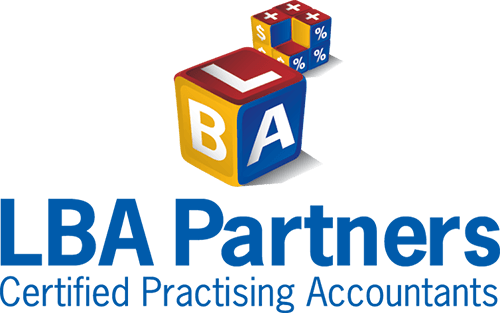P r a c t i c e U p d a t e
February 2011
Editor: Our hearts, minds, thoughts and good wishes go out to all Australians who are suffering through this unprecedented time of natural disasters throughout the country.
The response by all Australians has been nothing less than remarkable and the glow of their generosity truly warms us all as a community (although it remains to be seen what effect the Government's proposed 'flood levy' will have on donations in the future).
The Tax Office (ATO) for its part has offered help to those in flood affected areas, and has introduced a range of support strategies, including the deferral of lodgment dates, and General Interest Charge (GIC) "stoppers" for businesses, taxpayers and tax practitioners.
Please call our office if you require any further information on the flood assistance measures provided by the ATO.
Claiming deductions for donations to flood relief
The ATO has approved ‘bucket donations’ for the 2011 Queensland, Northern New South Wales and Victorian floods, as it did for the large number of donations made after the Victorian bushfires in 2009.
People who give to ‘bucket appeals’ can claim a tax deduction for contributions up to $10 in their 2010/11 tax return without the usual need to keep a receipt.
Paid parental leave scheme
The Government’s Paid Parental Leave scheme started on 1 January 2011. Employees with a child born or adopted on or after 1 January 2011 can take 18 weeks of paid parental leave at the national minimum wage, which is currently $570 a week before tax.
Full-time, part-time, casual, seasonal, contract and self-employed workers may be eligible.
Editor: Employers' participation in the scheme is voluntary until 30 June 2011 (if an employer does not agree to participate, the employee will receive the payment from the Family Assistance Office (FAO)).
From 1 July 2011, employers must provide parental leave pay to their eligible employees who have been with their business for at least 12 months before the expected date of birth or adoption of their child.
The FAO will provide employers with funds to pay parental leave to their employees. They will also contact employers to start this process.
Employers just have to provide the parental leave pay to their employee with the usual tax deducted.
Employers will not need to make super contributions on parental leave pay. Also, it will not increase employers’:
- payroll tax liabilities; or
- workers compensation premium liabilities.
Editor: Clients requiring assistance should contact our office.
Tax Office data matching program – building industries
The Tax Office has commenced another data-matching program which will request and collect names and addresses of entities within the building, construction and ceiling insulation industries.
It will collect the information from a range of government departments, such as Departments of Education and Training, as well as the following businesses:
- Richard Crookes Constructions Pty Ltd;
- Abigroup Limited and Abigroup Contractors;
- Bovis Lend Lease;
- Brookfield Multiplex;
- Hansen Yuncken Pty. Ltd.;
- Laing O’Rourke; and
- The Reed Group.
These will be electronically matched with certain sections of ATO data holdings to identify non-compliance with lodgment and payment obligations.
Super Funds: ATO targets loans and in-house assets
In selecting cases for audit this year, the ATO will focus on superannuation funds with repeated contraventions of the rules regarding loans and in-house assets (IHA) (i.e., related party assets).
Breaches of IHA rules
In relation to breaches of the IHA rules, the ATO has found that trustees have again been using their retirement benefits to support related businesses and are clearly exceeding the 5% limit.
Consequences
Trustees must be careful not to breach these rules as non-complying funds lose access to concessional tax treatment: their income as well as their total assets (less any member contributions for which no tax deduction has been claimed) are taxed at the highest marginal tax rate, until the ATO reinstates their complying status.
ATO helps full-time students claim study deductions
The ATO has accepted that the High Court decision in the case of Anstis means that taxpayers may be eligible to claim a deduction for their study expenses if they received youth allowance to study full-time.
Tax Commissioner Michael D’Ascenzo said that the ATO will amend tax assessments of eligible taxpayers to include a tax deduction for study expenses for the 2007, 2008, 2009 and 2010 income years.
“We will issue amended assessments to include a deduction of $550 for each year you are eligible. These deductions represent amounts that people who receive youth allowance would reasonably have incurred.”
Where students believe they have incurred expenses of more than $800 (the first $250 of education expenses is not deductible), they can seek an amendment for that higher amount, if they have records to support their claim.
Editor: The ATO will be writing to eligible taxpayers between 1 March 2011 and 30 April 2011. If you don't get a letter by 30 April when you think you should, contact us and we'll try to sort it out.
Changes to Trust Laws
The Assistant Treasurer has announced that the Government will update Australia's trust taxation laws as a result of the recent High Court decision in the case of Bamford, which highlighted ongoing discrepancies between the treatment of trust income by trust laws, on the one hand, and by the tax system on the other.
A public consultation process will be the first step towards updating the trust income tax provisions and any options will seek to ensure that net taxable income of a trust is assessed primarily to beneficiaries.
The options will not include the taxation of trusts as companies, which would be a major departure from the current law.
Changes for farmers with trusts
The Government also announced that it plans to introduce amendments before 30 June 2011 so that beneficiaries of trusts carrying on primary production activities can continue to use the primary production averaging and farm management deposits provisions in a loss year.
Please Note: Many of the comments in this publication are general in nature and anyone intending to apply the information to practical circumstances should seek professional advice to independently verify their interpretation and the information's applicability to their particular circumstances.
Management Consulting
We have the know-how and experience to offer advice that helps you run your business more effectively.
Self-Managed Superannuation Funds
At LBA Partners we provide the professional advice you need to manage your own fund and greatly simplify the process for you.



